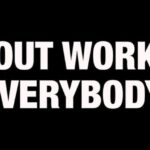“Greatness isn’t about size; it’s about showing up and making your existence count.”
On a bright, sunny day, Deepti is at home, getting ready for her best friend’s birthday party. Then suddenly, one of her friends calls and asks about the birthday gift she had planned. Deepti, with droopy shoulders, sits on the couch, feeling bad because she completely forgot about the gift. She’s on a time constraint and needs to leave in the next two hours.
That’s when Deepti gets an idea. She grabs some yarn and a needle and starts making a crochet piece for her friend. Within two hours, she creates a personalized jumper, and her friend loves it to the core.
That night, when Deepti returns home, she realizes her unique ability to create complex crochet designs in a short span of time. That’s when she decides to become an entrepreneur. Her USP? Selling custom crochet pieces on the same day of order. And soon, her business goes crazy in the market.
Now, you might wonder why I’m telling you this story.
My friend, gone are the days when you needed huge financial backing or a popular brand to start something. The only thing that truly matters is: How good are you at building your product? The world is changing, and so is people’s perspective on business. That’s why we’re witnessing the rise of micro-entrepreneurs.
A micro-entrepreneur is someone who starts small in a specific niche, scales gradually, and builds a brand in that zone. If you want to be one, this is your must-read blog.
So let’s dive deep into the rise of micro-entrepreneurs and how small businesses are disrupting industry giants.
The Mindset of a Micro-Entrepreneur

“Realizing your potential and vulnerabilities is your first step to success.”
I have three types of people in mind right now. Choose which one you belong to:
Set A: The Perfectionist Hustler
- You believe quality is everything, if it’s not perfect, it’s not worth launching.
- You think one perfect shot is better than multiple messy attempts.
Set B: The Fast-Moving Opportunist
- You prioritize speed over strategy, often moving without a clear plan.
- You work on multiple ideas at once, hoping one will explode.
Set C: The Action-Oriented Freak
- You prioritize action over perfection: start, adapt, and improve.
- You own your space, learn from feedback, and stay consistent.
Be honest. This isn’t a competitive exam. Your answer will help you truly reflect on the tone of this blog.
Society often has two types of people:
- Those who fear failure and hesitate to start.
- Those who chase quick wins without a long-term plan.
These two categories are exactly what Set A and Set B represent.
But do you know who ultimately wins? Set C.
They aren’t afraid to fail, nor are they desperate to win. They just keep improving, improving, improving!
A micro-entrepreneur has the ability to start something small and the confidence to turn it into a business. You need patience and the ability to learn from feedback.
Now that we’ve set the foundation, let’s explore how micro-entrepreneurs are taking over the market.
The No-Code Revolution
- Have you seen people learning to code to build something? Probably, yes.
- Do you think coding is still a necessity in today’s world? I don’t think so.
From planning to execution, everything has become easier. Traditionally, people thought they needed to learn coding to create something. But let’s be real, coding is just a tool, a language that computers understand.
Most people get an idea and immediately start coding like crazy, focusing on aesthetics instead of streamlining systems and operations.
But the world has changed. No-code apps and AI agents are reducing both time and capital investments. A solo entrepreneur now has the power to outpace a traditional business.
Let’s take an example.
Ram’s Smart Move:
Ram owns a local supermarket serving a locality of 4,000 people. His revenue has been stagnant for a long time, so he decides to digitize his business to increase profits and improve customer experience.
Instead of hiring an agency or learning to code, Ram takes a direct route.
- He built an app in a single day using no-code tools and listed it on the Play Store.
- He marketed it to his local customers.
- He launched an AI chatbot to handle customer service.
- He used AI tools to analyze demand trends, track repeated customers, and predict upcoming trends.
With this data, Ram optimized his inventory, provided better service, and scaled rapidly.
What’s the lesson here?
No-code apps and AI tools will buy you extra time and money, allowing you to focus on making your product better.

Social Media: The Equalizer Between Small & Big Players
Social media is a boon for small businesses.
Five to seven years ago, many great small businesses failed to scale because they lacked capital to reach a wider audience. But today, social media has completely changed the game.
One viral video can turn a small business into a household name overnight.
Big companies spend millions on ad campaigns featuring actors with scripted emotions. Meanwhile, small business owners become the face of their brand, interacting directly with their audience and making every person feel valued.
Customers today don’t just buy a product; they buy into people, values, and stories.
The agility of small businesses also gives them an edge. While corporates take months to launch a campaign, micro-entrepreneurs can execute one overnight.
The “Nano-Niche” Strategy: Winning by Going Ultra-Specific

Let me give you an analogy.
Do you think an olympic level swimmer start his/her journey from swimming in a 50 meter pool? NO
- First, they master swimming in a small pool.
- Then, they move to a bigger pool.
- Next, they train in tougher conditions.
- After mastering every environment, they finally compete at the Olympic level.
Similarly, before conquering a large market, you must dominate a smaller one.
Example: Micro-Niching in Action
A startup begins by creating customized caps for dogs, targeting a niche market with little to no competition. With fewer players in the space, conversion rates are naturally high as pet owners seek unique and personalized accessories for their dogs. As the brand gains trust and a loyal customer base, it strategically expands its product line to include dog sweaters, T-shirts, and other accessories. Customers who initially purchased caps now return for additional products, leading to higher retention, increased customer lifetime value, and organic word-of-mouth growth, ultimately establishing the brand as a leader in the pet fashion industry.
Government’s Role in Fueling the Micro-Entrepreneurship Boom
Businesses can’t thrive without government support, and in India, the government has taken significant steps to promote MSMEs (Micro, Small, and Medium Enterprises). Various initiatives, such as special credit cards for small businesses, tax exemptions, and women-centric schemes, have been introduced to empower entrepreneurs. These incentives provide financial relief, encourage innovation, and create a more favorable environment for small business owners, enabling them to scale comfortably and compete in the market with greater confidence.
The Future of Business: Why “Small” is the New “Big”
The buying, selling, and perception of businesses are changing.
Corporate culture is fading as small brands gain the upper hand in customer trust. While big companies focus on increasing profits, small businesses focus on solving problems and making customers feel valued.
We’ve already seen D2C brands like MamaEarth, Sugar, and Minimalist outpacing FMCG giants like Hindustan Unilever and P&G.
How?
- They solve a niche problem first.
- They expand strategically.
- They use relatable, influencer-driven marketing.
Conclusion
The future belongs to niche experts.
People no longer want one brand to solve everything, they prefer a specialized brand that excels at solving one problem.
Industries like mining, petroleum, and telecommunications will continue to thrive with large corporates leading the space. But for everything else, micro-entrepreneurs are the future.
So, if you have an idea, start small, build smart, and grow relentlessly.
thehustleweek.com is here to remind you every week that you’re not alone on this journey. Don’t waste another year stuck in imagination; start taking action today. Each week, theHustleWeek aims to unlock your potential by providing valuable insights that inspire and empower you to think differently.
As a community of hustlers, theHustleWeek aims to positively impact your life. If you found this article useful, please share it and leave your thoughts in the comments section. Your feedback encourages us to create more curated content. Feel free to explore our other blogs as well.





